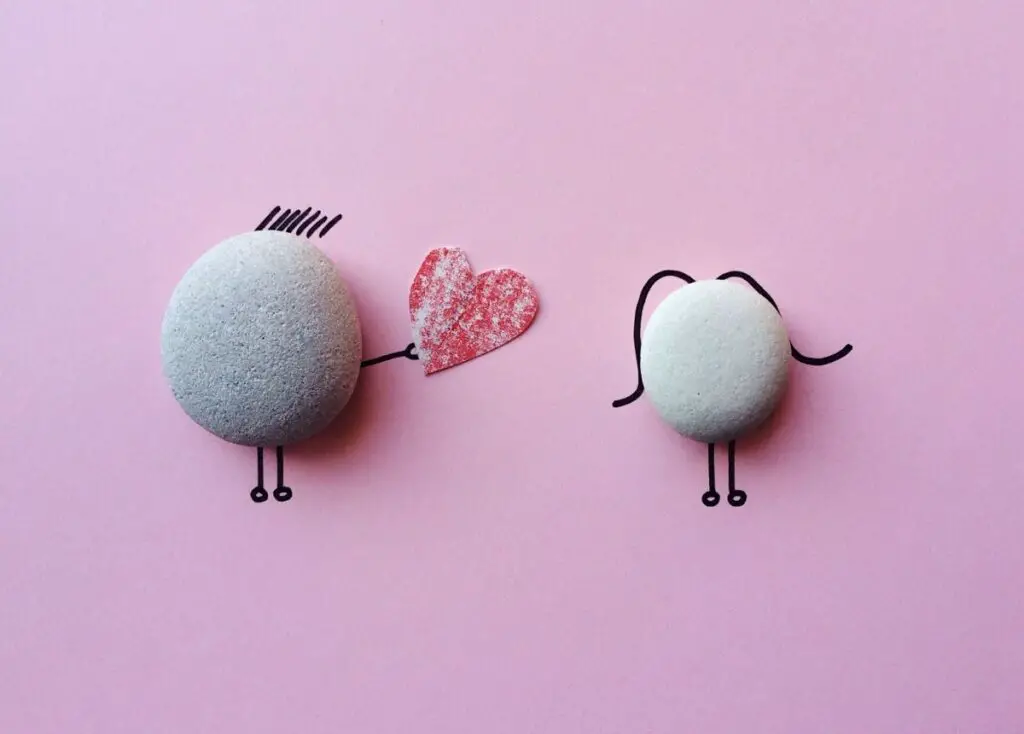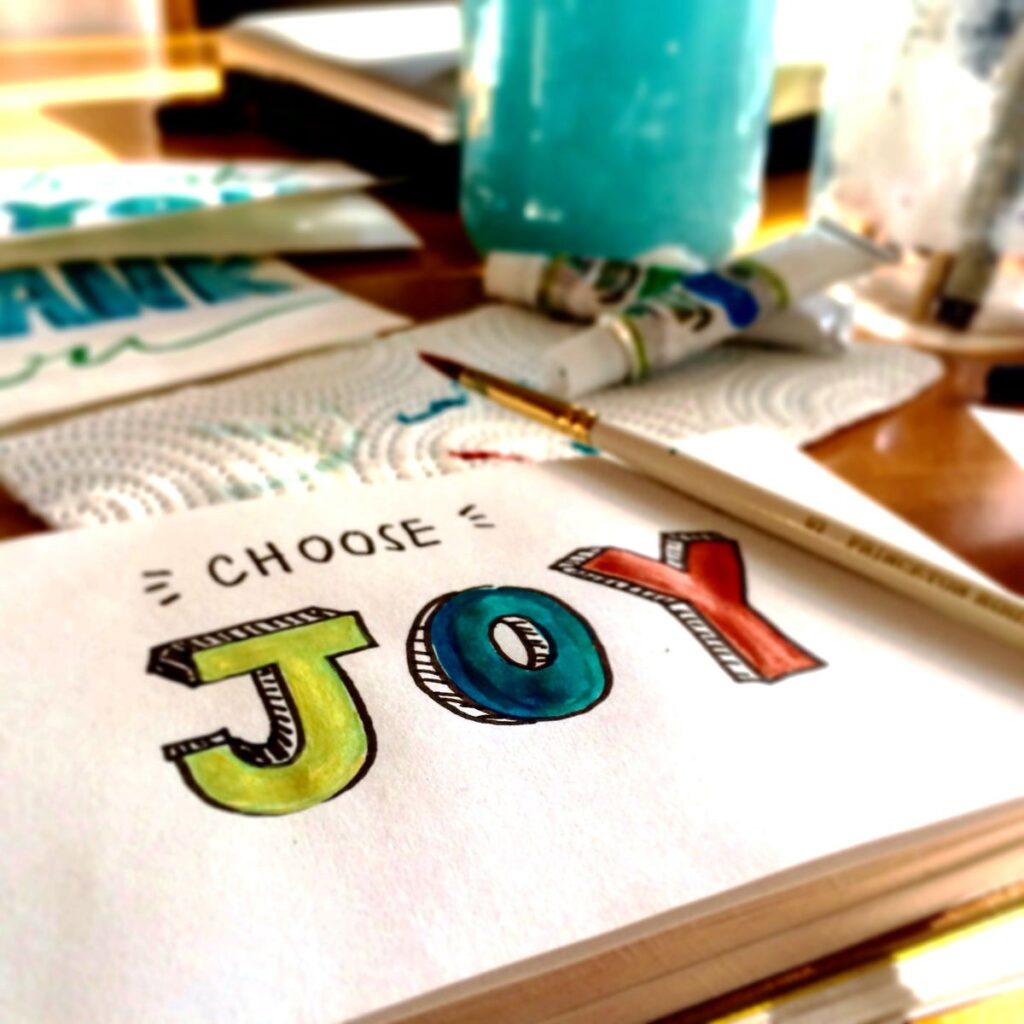Choosing Happy: How Self-Love Can Outshine Love and Joy Coupling
For many people, having a romantic partner complete with all the love and joy coupling is viewed as a quintessential part of a happy, fulfilled life. From fairy tales to Hollywood movies, cultural messages equate the love language of choosing love and marriage with ultimate happiness.
But is the stereotypical belief of choosing love and with it love and joy coupling truly necessary for well-being? Specifically, is being part of a romantic relationship required for people, especially those on the autism spectrum, to live satisfying and happy lives?
It’s easy to believe that you have to have a romantic partner complete with love and joy coupling, according to society. But is choosing love a requirement if you prioritize the goal to choose happy?
First, I think it’s important to remember you don’t need to have a romantic relationship if you don’t want one. Happiness and life satisfaction don’t come from the world, so external factors don’t really matter like some people think they do.
In other words, you don’t need to find the perfect girlfriend/boyfriend or become a billionaire or anything else that society or social media deems is necessary for happiness; the goal of choosing to be happy and satisfied with your life has to come from yourself.
Only you, in the end, can make yourself happy. It’s a superpower that each of us has, and one that we so often give away to others for managing (which is unfortunate).
A lot of the world is always trying to make you feel like you need to experience love and joy coupling and to learn a love language to feel content and have self-worth. The world often proclaims you need to “choose happy” by choosing love and a romantic relationship and sells you the supposed solution for achieving it all.
Special “couple” occasions and holidays can also send the message of needing coupledom to achieve happiness. The traditional kiss at midnight on New Year’s Eve to welcome in the new year, Valentine’s Day, and even attending events like prom, weddings and reunions brings pressure to have a “plus one” at events as a way to show how happy and successful we are.
But the reality is that most of us don’t really need much to be happy with our lives. And that includes having, or not having a romantic partner. We just want more and to are told we must find the “love of our life” because everyone tells us we should.
So we start comparing ourselves with others and go down the rabbit hole of never having enough or somehow are “less than” when it comes to autism and love. And that is just plain wrong and, in truth, harmful to our mental health.
Love in general is complicated in itself and autism and love is even more so. So, before you should even consider whether you need to find someone to love, I think it’s more important to “choose happy” for yourself. You can do that by shifting your thinking about your emotional health and determining what you need and want vs. what others tell you that you “should” want, and then make your own goals the things to drive your happiness.
This relates to the philosophy of stoicism; you need to learn how to control your emotions so you can live a good life, and if you want to learn more about stoicism, read my article about it here. Don’t fall for society’s sales pitch; remember to stay calm and remember that you don’t need much to be happy and live a good life. If you can do that you will do amazing.
Autism and Love: Should Love and Joy Coupling Even Matter?

Specifically, is being part of a romantic relationship with love and joy coupling necessary in order for people on the autism spectrum to live satisfying lives?
The diverse array of characteristics and abilities within autism make this question especially complex. Some individuals with autism have significant support needs, challenges with communication, sensitivity to stimuli, and repetitive behaviors.
Others are more independent, verbal, and better able to regulate emotions and impulses.
Read more about hidden struggles and exploring the top 10 autism challenges.
Regardless of where someone falls on this vast spectrum, social connections undoubtedly contribute to overall health and happiness. However, the intimate nature of romantic partnerships involves unique demands.
Autism and Love: Navigating Romance When Neurodiverse
For those on the higher functioning end of the spectrum without intellectual disability, the concept of dating and relationships may not seem entirely unfathomable. With therapy and practice, some autistic people can learn to manage eye contact, read subtle social and emotional cues, and communicate reciprocally without masking.
Yet even for those with strong intellect and self-awareness, the messy realities of romantic intimacy and love and joy coupling can feel mystifying and anxiety-provoking.
Then there are those on the spectrum with more significant social, emotional, communication and sensory challenges. The complex dance of dating likely elicits feelings ranging from mild apprehension to complete aversion. The inherent expectation of physical touch may also compound difficulties for those with sensory sensitivity. Even basic handholding could prove uncomfortably stimulating or overwhelming.
Beyond physical intimacy, trying to meet another person’s hopes and needs often demands tremendous mental energy and capacity for perspective—faculties that are often strained for individuals with autism. Time spent looking inward to understand a partner’s words, feelings and actions is cognitively and emotionally taxing, neurodiverse or not.
Spreading one’s care and attention to consider, and emotionally support another may deplete already limited inner resources. You can read more about an individual’s limited energy sources with my article on spoon theory here.
Additionally, the variable nature of romantic relationships conflicts with a strong preference for consistency and routine—a common comfort-seeking trait in autism. The effort required to flexibly roll with unpredictable needs or desires of a partner can frustrate attempts to maintain personal rituals and stability when considering the topic of autism and love and learning a love language.
Love and Joy Coupling: Potential Perks of A Romantic Partnership

A compassionate partner can help moderate sensory overload, gently explain confusing social nuances, and show unconditional positive regard and love language.
Love and acceptance—when truly felt—has profound potential for healing.
For those able to identify and assert personal needs while also attuning to a partner’s world with empathy, romance holds possibilities to enrich life. A mature, committed union allows for safely exploring facets of oneself.
Pleasure, play, deep conversation about special interests, and tenderness may unfold beautifully for some upon the spectrum. Physical intimacy, too, can range from pleasurably calming to ecstatic when an autistic person finds a sensitive, trusted partner.
Regardless of functioning level, individuals on the spectrum deserve opportunities for this fullest expression of humanity, if desired. However, psychological models of relationships often pathologize the communication styles, sensory issues, and support needs inherent in an autistic psyche.
Viewing autistic traits as damaged or defective fails to celebrate neurodiversity. It places burden of change solely on the autistic partner rather than responsibility for mutual growth and compromise.
As societal understanding and acceptance of autism evolves, more potential partners will hopefully approach relationships from a stance of curiosity over judgment or presumption. There are also online communities and local meet-up groups specifically for autistic adults seeking meaningful connection and for those choosing love.
Just like neurotypicals, autistic folks who choose happy and chasing love crave being seen, heard and cared for in intimacy. For those able to articulate their own versions of these ideals, there is every hope for loving partnership.
Weighing Worth and Well-Being When Chasing Love Language of Romance
Autism and love manifests too uniquely in each person to categorically define romantic success or failure. Research on outcomes is enormously mixed, with plenty of single, partnered, divorced and remarried autistics reporting happiness and life satisfaction.
Some studies show strong correlations between lasting marriage and positive well-being. Others conclude that high divorce rates reflect the immense difficulties of navigating joint life with someone whose neurology functions so differently.
Understanding that there are very real barriers that social, sensory, communication, and cognitive variables within autism bring, it seems misleading and even dangerous to declare romance a requirement for autism and love needs for a fulfilled life.
For some individuals on the spectrum, the stresses clearly outweigh potential gains. Friendships or community groups may meet core needs of love and joy coupling without the confusing codes of courtships. Special interests, art, pets, family, nature, and solitary pursuits also nurture happiness for those less interested in dating.
In the disability community, conversation around this dilemma reflects a concept called “dignity of risk.” This notion honors an individual’s autonomy and humanity by allowing them to attempt experiences that may involve failure or setback, if freely chosen.
Protection must be balanced carefully with supporting self-determination. In matters of the yearning heart, this complexity surfaces acutely.
As with any human longing, there are few black and white answers regarding autism and love’s ability to enhance or diminish life. Outcomes wholly depend on variance of each autistic person’s abilities, means of communication, concept of self, and interpretations of connection.
The most vital ingredient for satisfaction is self-understanding coupled with freedom to shape one’s path, either alone or with a cherished companion by one’s side.
Love and Autism: Is Chasing Love and Joy Coupling Even A Need?

Navigating the steps to “wooing” someone feels gargantuan. An aversion to risk and uncertainty further muddies prospect of relinquishing sole control over one’s tightly orchestrated world.
And yet, with compassion and willingness to learn from those who experience intimacy differently, romantic relationships may offer unparalleled means of communicating adoration for certain autists.
Regardless of outcome, preserving dignity for each autistic person to author their own love story without judgment remains a top priority.
In reality, there is no formula or prescription promising happiness either within coupledom or solitude. As the disability rights mantra declares, “Nothing about us without us.”
Those on the spectrum themselves must define what thriving truly entails based on their distinctive abilities, interests, priorities and interpretations of fulfillment.
Just like snowflakes, no two autism journeys are the same. Without listening to a person’s individual and unique perspective, any speculation about needs and/or goals for satisfaction regarding love and autism will miss the mark.
Practical Paths to Connection: Determining the Autism Love Language
If desiring a romantic partner, where does one start? How can people on the spectrum increase possibilities while honoring their authentic selves? Though no single piece of advice guarantees romantic success, developing social-emotional skills and self-advocacy can ease anxiety and strengthen coping when interacting closely with another.
Many autistic adults benefit tremendously from psychotherapy and hands-on assistance to better navigate interpersonal relationships that can sometimes be difficult to the autistic mind.
Cognitive behavioral therapy aids in identifying, articulating and regulating emotions, managing anxiety, reading subtle cues in conversation, and expanding empathy for different communication styles.
For example, occupational therapy can teach concrete dating etiquette and physical affection skills. Carefully controlled exposure helps desensitize to touch. Feedback offers opportunity to fine-tune mannerisms.
Beyond professional help, what else enables choosing happy goals and fulfilling a love and autism connection? Most critically: self-awareness and self-advocacy. Knowing one’s sensory sensitivities, social styles, emotional landscape and communication preferences is essential.
Paying attention to patterns of overwhelm and integrating needed regulating respites prevents burnout when facing another’s intense presence. By realizing personal rhythms, capacities, and breaking points, an autistic person can determine relationship needs and work on fulfilling them without distress.
This means clearly requesting specific accommodations, openness, reciprocity and respect from a prospective partner early on. Through humility and honesty about both treasures and trials of the autistic temperament, suitable matches may emerge, leading to potential love and joy coupling.
Debunking Myths About Love and Autism
Dispelling harmful assumptions about love and autism also plays a part of determining an autism love language scenario. Social narratives that stereotypically glorify neurotypical versions of romance can further alienate autistic dreaming.
Erasing flawed fallacies around love and attraction can help someone who chooses romance as a goal more possible.
For one, cultures fixate on physical love. But for those neurodiverse individuals, a narrow physically focused view of intimacy overlooks the profound spiritual and emotional connection a different sort of affection kindles.
Bonds transcend bodies. Many individuals on the spectrum seek the emotional aspect over the physical one as a greater goal for finding love.
Prioritizing companionship with another person is a more common goal for many individuals with autism than a romantic one. That doesn’t mean you need to have one without the other. It’s just that many on the spectrum have a goal of relationships with others that simply include finding someone with common interests and to talk with.
The romance part is a something that may or may not be important. Embracing each autistic person’s right to engage connection on their own terms squelches stigma.
The Bottom Line of Whether A Romantic Relationship is Important to Be Happy
At the end of the day, the answer to whether happily ever after necessitates coupledom is a definite “maybe.” Some individuals with autism may find true love and cherish unions filled with growth, passion and care.
Their innate differences may even enhance relational dynamics, as research on some happily married spectrum couples reveals. When embraced through a lens of neurodiversity over deficiency, autistic traits foster extraordinary empathy, loyalty and honesty.
For others – whether lower functioning or hampered by trauma, naiveté, or indifference – navigating a relationship may result in anguish and unhappiness rather than the opposite effect as commonly shown with movies and media. The cons of a romantic partnership could easily eclipse the pros given individual dispositions.
In other words, whether neurotypical or neurodiverse, not everyone is happy in a relationship. Many people are truly more satisfied and fulfilled on their own and in full control of their life.
Ultimately, each person on the spectrum must weigh variables of personal abilities, preferred communication modes and concepts of purpose when determining what connects them to living their best life.
So while ideals of love pervade society, believing fairy tale standard of happily ever after is required for well-being only results in more isolation for many individuals on the spectrum. Instead, affirming diversity in what connects us lifts up alternatives to mandated romance.
All kinds of relationships nourish self-expression and belonging. In the end, choosing community over conformity allows unique identities to unfold and lets individuals make the decision on choosing happy over choosing love.
In the end, isn’t it all that anyone wants is to find joy—on their own terms? If you’ve enjoyed reading this article about stereotypes that love is necessary to be happy, you might enjoy learning about other misconceptions as well. As always, thanks for reading and for your support. Contact me at any time at connor@myautismmind.com
Misconceptions About Autism that Leads to Stigmas and Stereotypes
Learn more about other stigmas and stereotypes that autistics face:
- Why Labeling People Can Lead to Stereotyping and Discrimination
- Autism Media Stereotypes: We’re Not All Geniuses, Savants, or Lonely
- Beyond Stereotypes: How Rain Man Revolutionized the Perception of Autism
- Absurd Plot About Autism and Evolution and Why It’s Harmful
- Moving Past the Tired Conspiracy Theory of Vaccines and Autism
- 3 Reasons Why Pathologizing Crushes Autism Acceptance and Inclusion
- The Hidden Hurdles: Challenging Autism Stigmas in Today’s Politics
- History of Autism: Revealing Shocking Mysteries from the Past
- Knocking Down the Stigma to Autism Obsession
